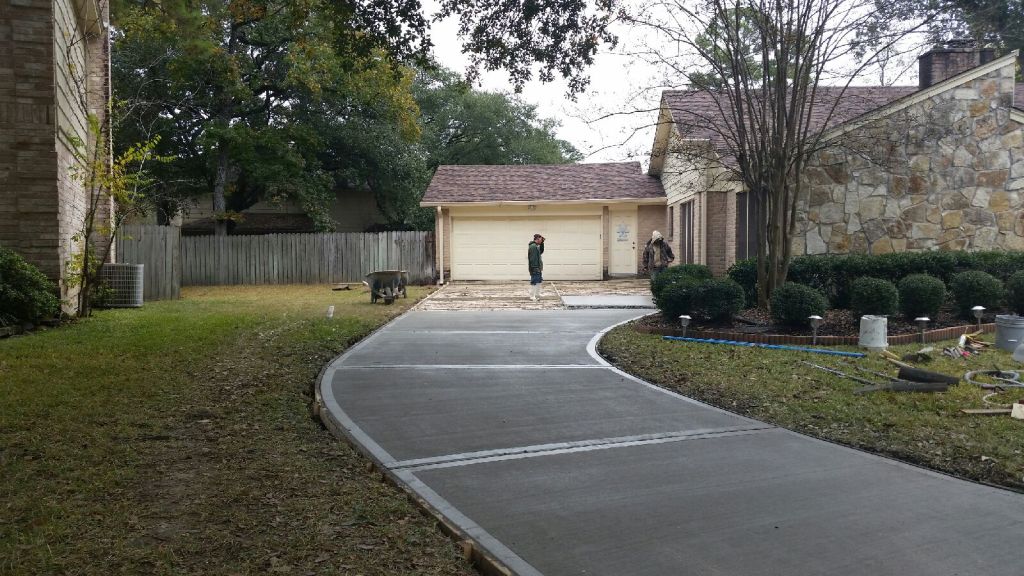Hiring a Driveway Contractor for Commercial vs Residential Projects
When it comes to hiring a driveway contractor, the requirements and considerations for commercial and residential projects can be significantly different. Both types of projects have unique challenges, and understanding these differences can help you choose the right contractor and ensure the successful completion of your commercial driveway. Here’s a detailed guide to help you navigate the process of hiring a driveway contractor for both commercial and residential projects.
Understanding the Scope
Residential
Projects:
Residential driveway projects are typically smaller in scale but require a high level of customization. Homeowners often prioritize aesthetics, durability, and how the driveway complements the overall look of their property. Common materials used for residential driveways include asphalt, concrete, pavers, and gravel. The contractor must be skilled in creating visually appealing driveways that can withstand daily use and varying weather conditions.
Commercial
Projects:
Commercial driveway projects are usually larger and more complex. These projects must handle heavy traffic, including vehicles such as delivery trucks and customer cars. Durability and functionality are critical, and materials used often include reinforced concrete and heavy-duty asphalt. Contractors need to consider factors like load-bearing capacity, long-term maintenance, and compliance with local regulations and safety standards.
Choosing the Right Contractor
Residential
Projects:
For residential driveways, look for contractors who specialize in residential work. They should have a portfolio of completed projects and be able to provide references from homeowners. Check online reviews and ratings to gauge their reputation. A good residential contractor should offer a range of design options, be willing to work closely with you to understand your vision, and provide a detailed quote.
Commercial
Projects:
Commercial driveway contractors should have experience with large-scale projects and be familiar with commercial standards and regulations. They should have a proven track record with commercial clients and the ability to handle the logistical challenges of larger projects. Ask for case studies or examples of similar projects they’ve completed, and ensure they have the necessary equipment and workforce to handle the job efficiently.
Budget and Cost Considerations
Residential
Projects:
Budgeting for a residential driveway involves understanding the costs of materials, labor, and any additional features you might want, such as decorative edges or custom finishes. Residential contractors usually provide more flexibility in terms of payment plans and may offer packages that include maintenance services.
Commercial
Projects:
Commercial driveway projects often come with a larger budget due to the scale and complexity involved. It’s essential to get a detailed breakdown of costs, including materials, labor, permits, and potential disruption to business operations. Commercial contractors might offer long-term maintenance contracts as part of their service, ensuring the driveway remains in good condition over time.
Timeline and Project Management
Residential
Projects:
Residential driveway installations usually have shorter timelines and less impact on daily activities. A reliable residential contractor will provide a clear project timeline, including milestones for completion. They should also be flexible and communicate effectively about any potential delays or changes
Commercial
Projects:
The timeline for commercial projects can be more extended due to the project’s complexity and size. It’s crucial to work with a contractor who has strong project management skills and can coordinate various aspects of the job, including obtaining permits, managing a larger workforce, and ensuring minimal disruption to business operations. Regular updates and open communication are vital to keep the project on track.
Permits and Regulations
Residential
Projects:
While residential driveway projects generally have fewer regulatory hurdles, it’s still important to ensure all local building codes and permit requirements are met. A good residential contractor will handle these aspects for you, ensuring compliance and smooth project execution.
Commercial
Projects:
Commercial projects must adhere to stricter regulations, including zoning laws, ADA compliance, and safety standards. The contractor should have experience navigating these requirements and obtaining the necessary permits. Failing to comply can result in significant fines and delays, so working with a knowledgeable contractor is essential.
Maintenance and Longevity
Residential
Projects:
Homeowners often look for driveways that require minimal maintenance but still offer longevity. Contractors should provide guidance on the best materials and construction techniques to achieve this balance. They might also offer maintenance services to keep the driveway in top condition.
Commercial
Projects:
For commercial driveways, long-term durability and low maintenance costs are crucial. Contractors should recommend materials and construction methods that can withstand heavy use and provide a detailed maintenance plan. This might include periodic inspections, repairs, and resurfacing to extend the driveway’s lifespan.
Conclusion
Hiring a
driveway contractor requires careful consideration of the specific needs of
residential and commercial projects. Residential projects focus on aesthetics
and customization, while commercial projects prioritize durability and
functionality. By understanding these differences and choosing a contractor
with the appropriate experience and expertise, you can ensure a successful
driveway installation that meets your needs and expectations. Whether for a
home or a business, the right contractor will deliver a driveway that enhances
the property's value and usability.


No comments: